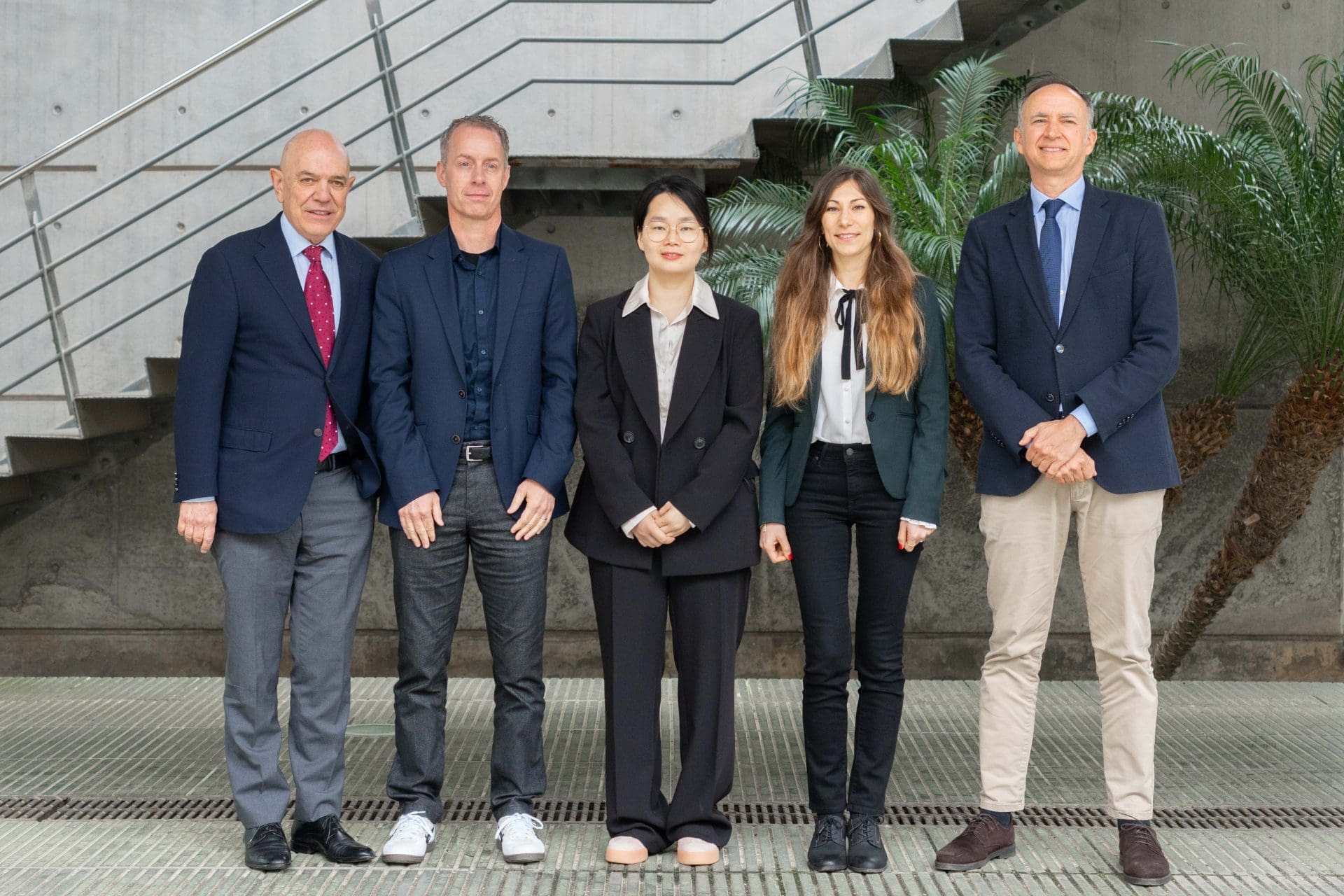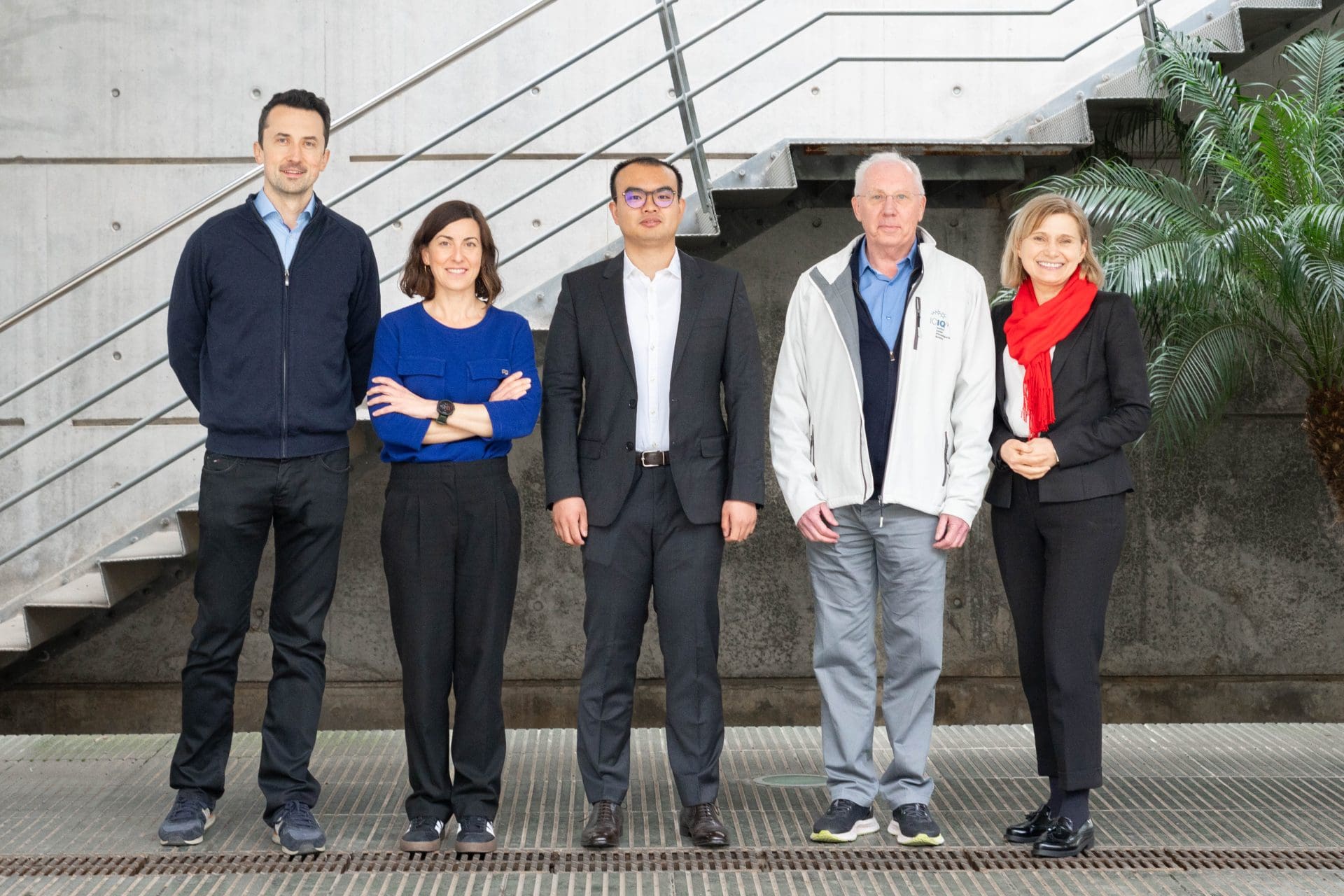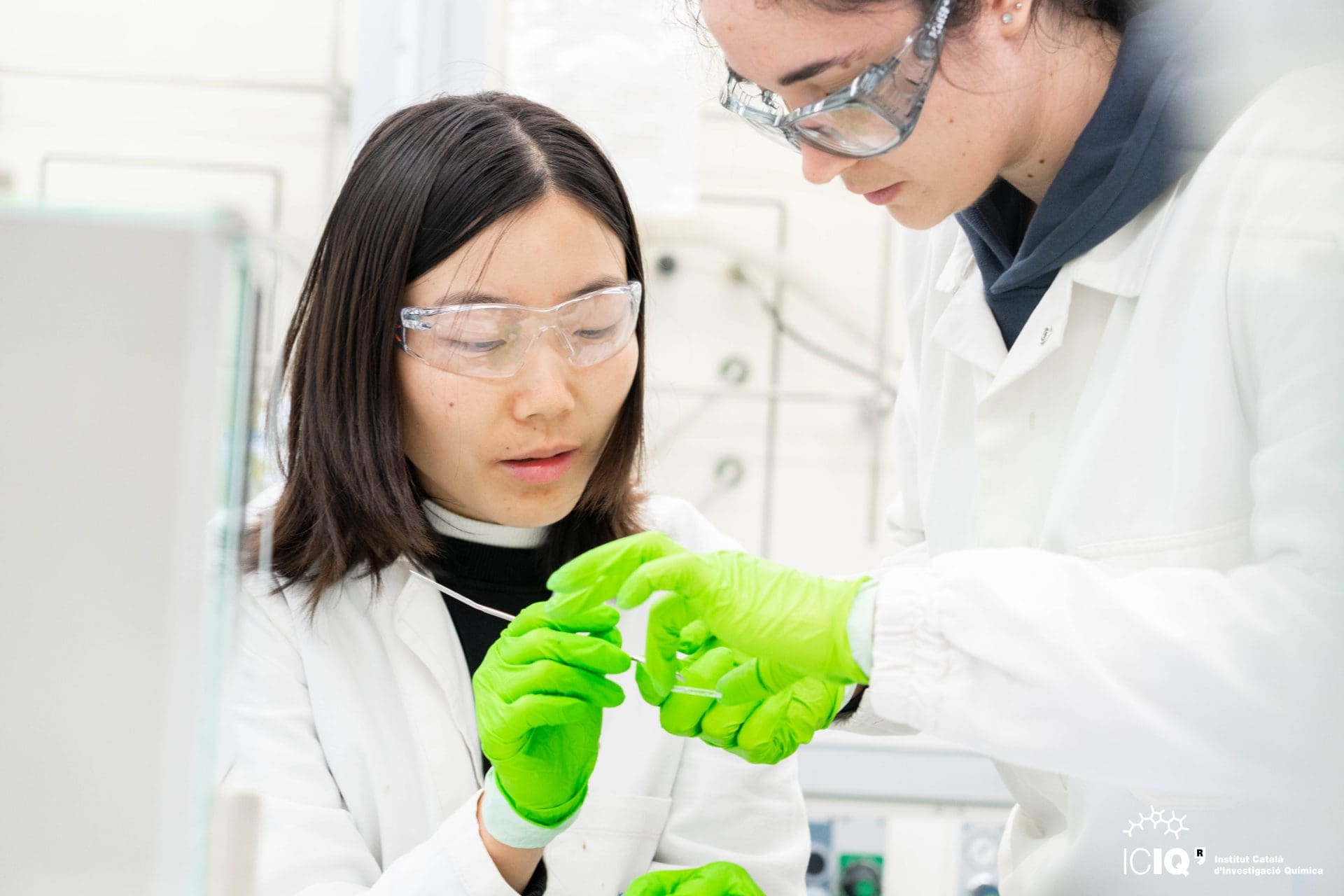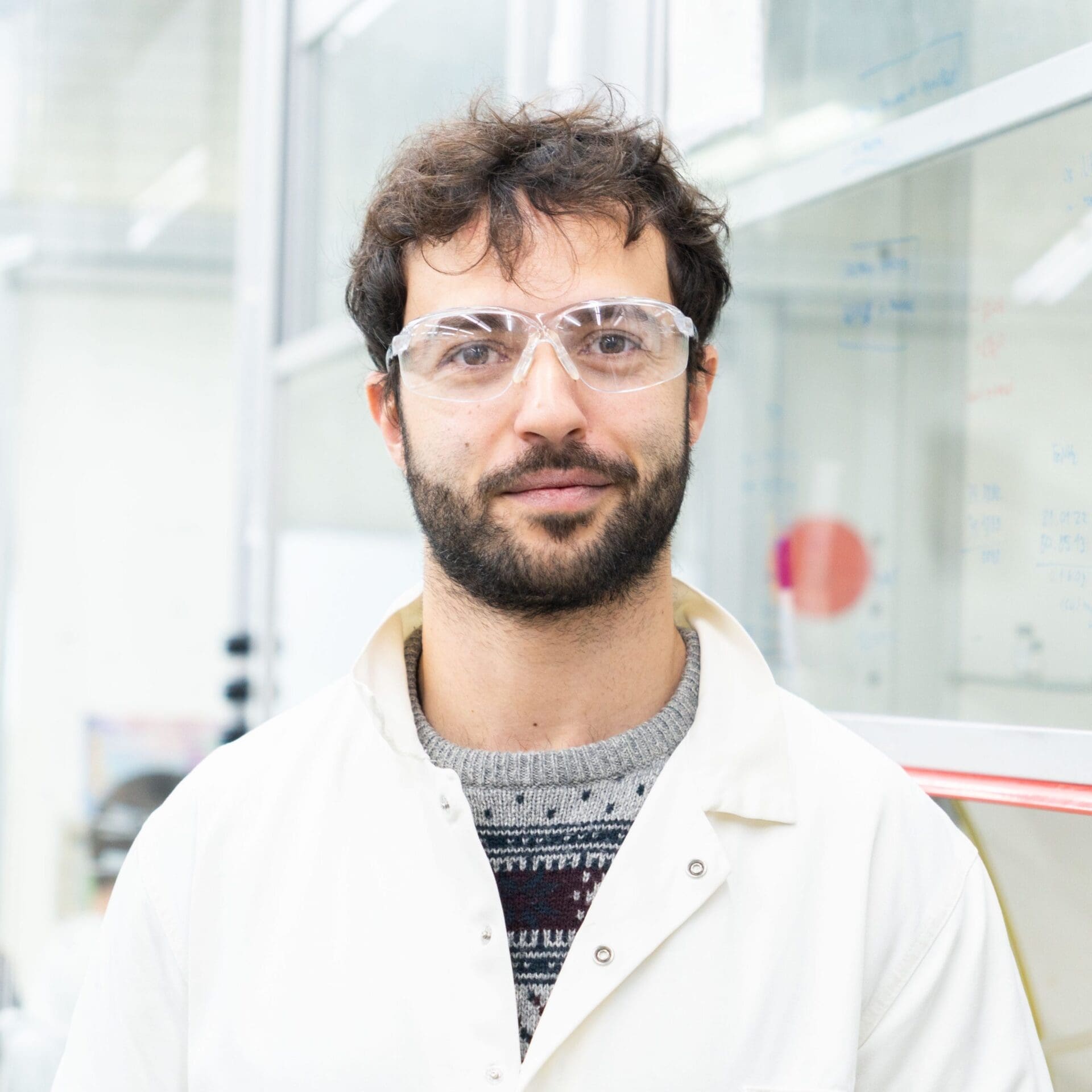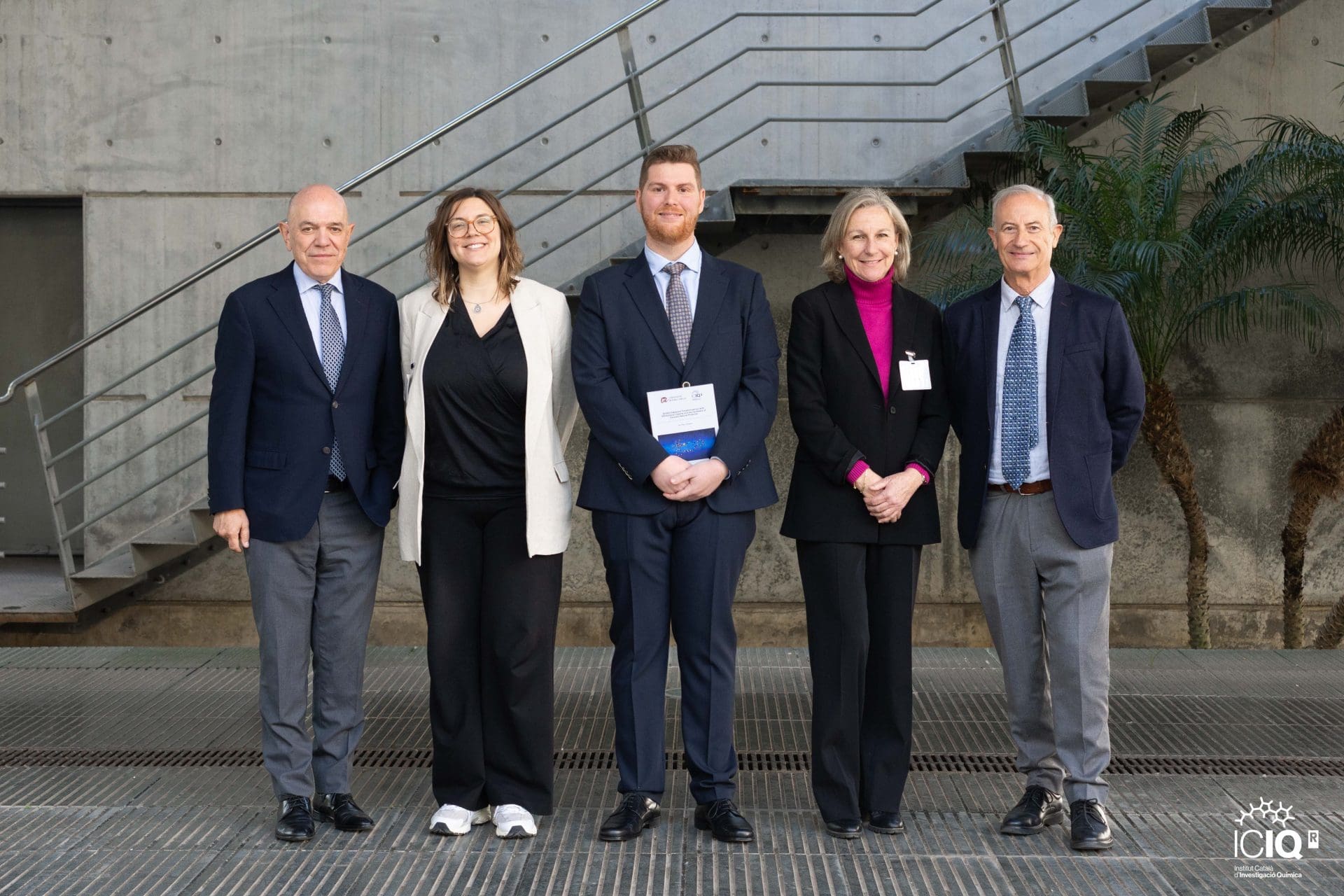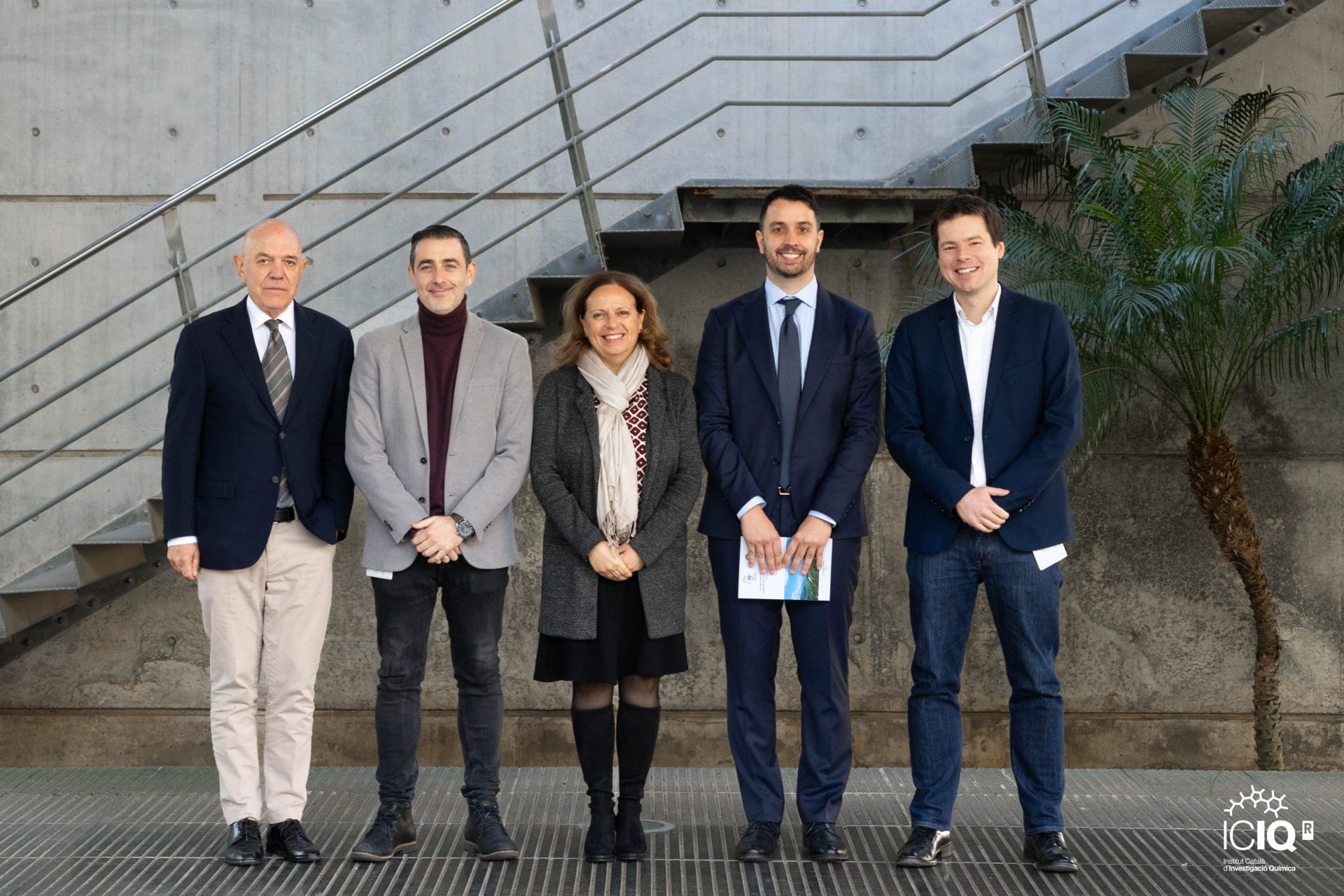New Doctor! Dr. Jiménez
Jesús Jiménez, PhD student under the supervision of Prof. Emilio Palomares (ICIQ) has defended his PhD Thesis entitled “Analysis of the Different Kinetic Processes in Perovskite Solar Cells” (assigned to the Department of Electrical Electronics Engineering and Automation of the Universitat Rovira I Virgili) publicly on November 22th at the ICIQ library.
The members of the examining committee were: Juan Antonio Anta (Universidad Pablo de Olavide), Matthew Carnie (Swansea University) and Tracey Clarke (University College London).
Dr. Jimenez is from Ávila, he studied Chemistry at the University of Salamanca and then he did his master’s in Material Science at the University of Alicante. He began his PhD at ICIQ in 2015 thanks to ICIQ’s Severo Ochoa the Mobility Program. He enjoys going to concerts and to the cinema, cooking and hiking whenever he can.
Why did you become a scientist?
Science has always attracted me; it was quite clear since I was young that I’d become a scientist. I was better at solving problems than studying theory so I always leaned towards the pure sciences although I didn’t know which path I’d take. When I first studied chemistry in high school, I liked it so much – and was also good at it – that I decided to follow it through.
From the lessons learnt at ICIQ, which one do you value the most?
The importance of working in a diverse team, both in terms of origin and scientific background. This diversity gives you a multidisciplinary and multicultural vision of research that helps you improve on many levels.
What will you miss the most from ICIQ?
My group colleagues and sharing meals with them. Social activities organised by ICIQ and the group were also great, like the calçotades and hiking activities.
What do you wish you had known at the beginning of your PhD? What advice do you have for someone who’s starting their PhD now?
You need to become an expert on your field – but this won’t happen overnight. You need to invest a lot of time and do a lot of bibliographic searches to truly understand a topic. The advice I’d give is to look on the bright side. You will have bad and good results during your PhD, but you can learn something, and there is valuable information in all of them.
Where are you going next? What will you do there?
First, I’ll rest for a bit. I want to continue doing research, so I’m looking for postdoc positions in Europe.
If you were a piece of lab equipment, what would you be?
Clearly a laser. First of all, because during my PhD I have studied the interaction of light with matter. I also think it’s a super useful instrument because it gives you a lot of information about many different processes by only analysing the interaction of the laser’s light with any material.
Related news

Let's create a brighter future
Join our team to work with renowned researchers, tackle groundbreaking
projects and contribute to meaningful scientific advancements
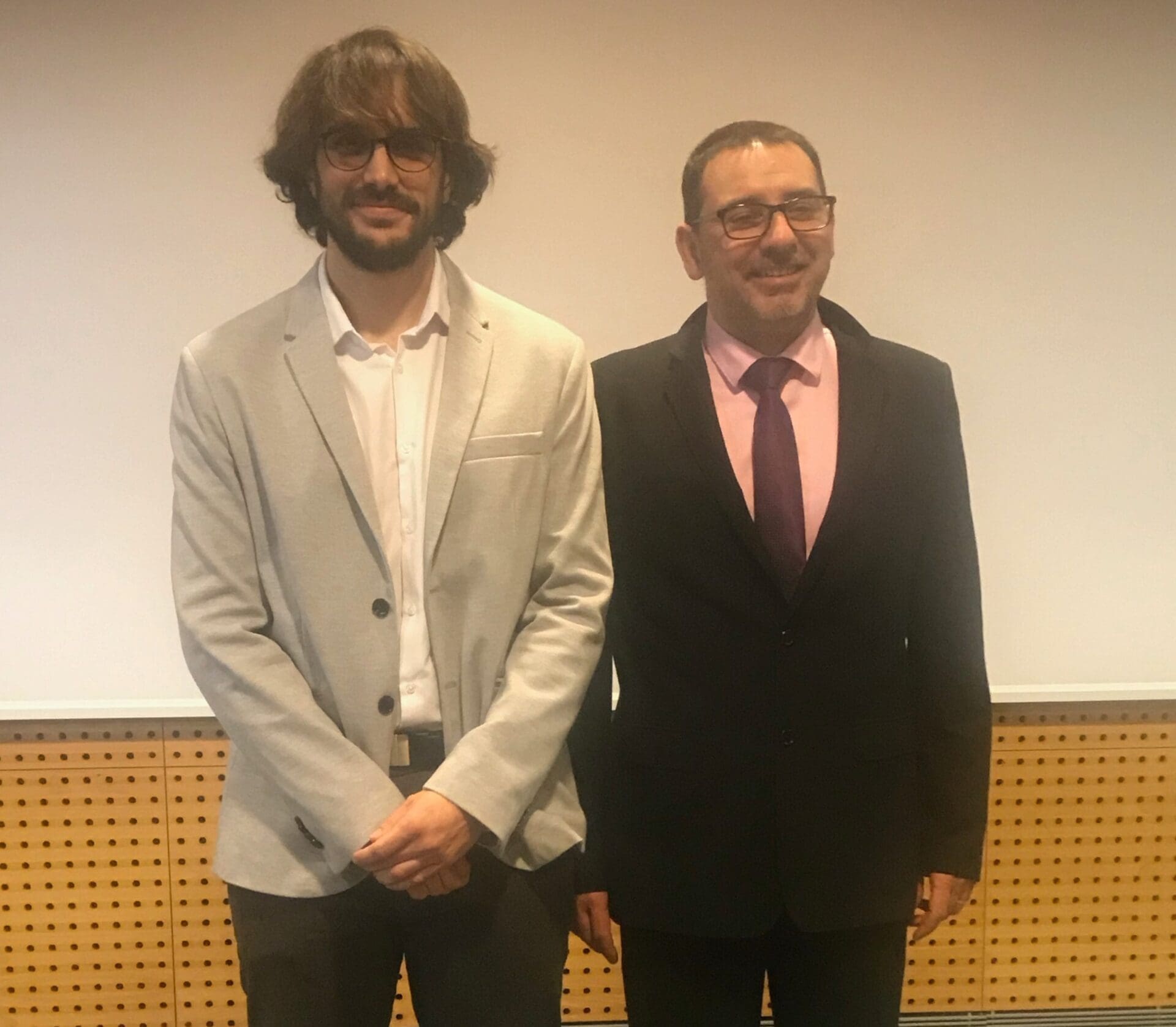
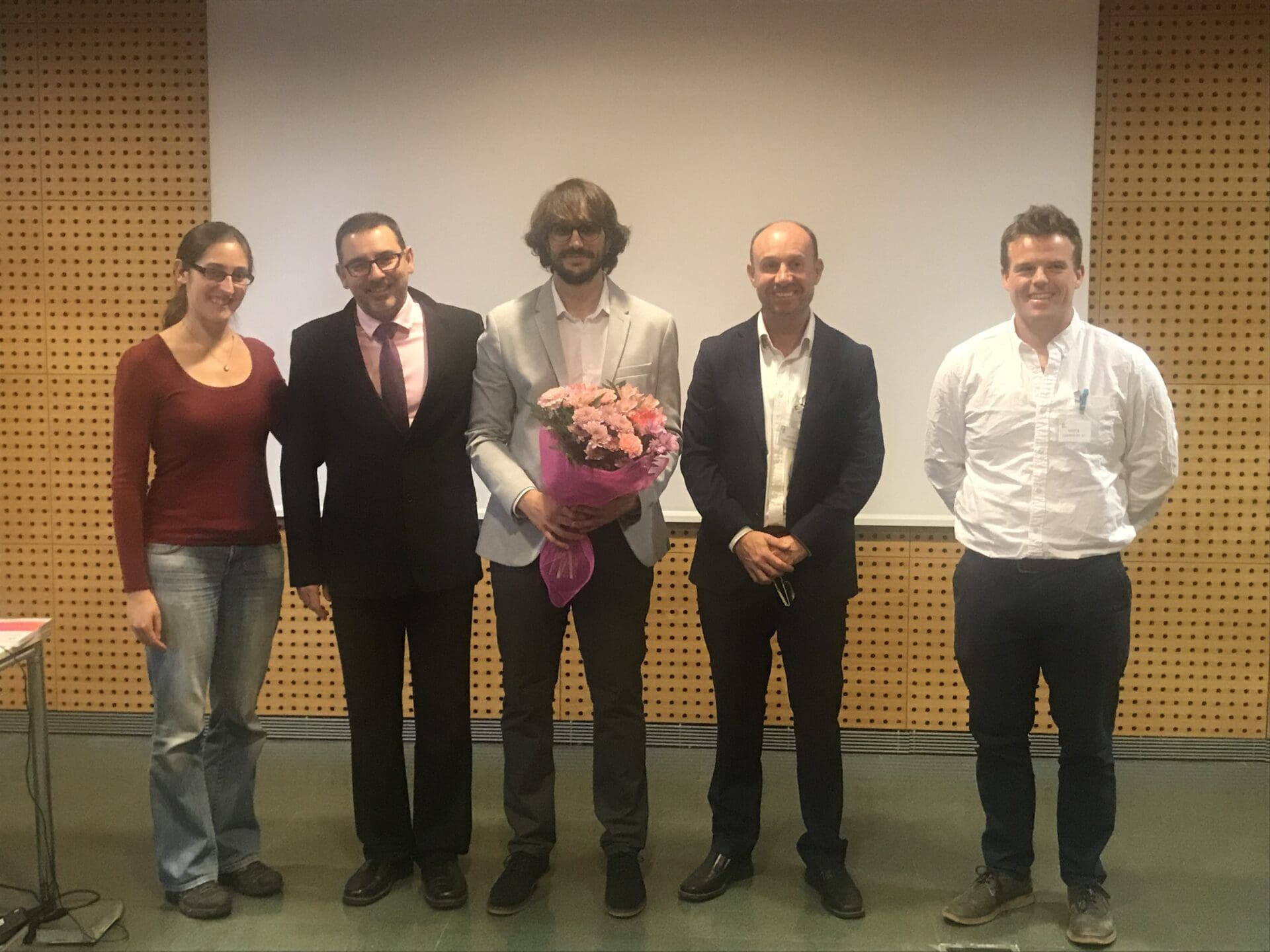






 07-03-2025
07-03-2025 